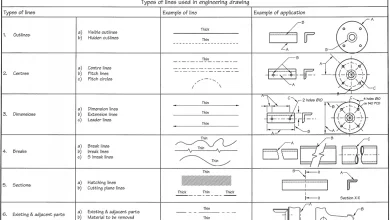Effective time management is crucial for academic success. Students who master this skill can enhance their productivity, reduce stress, and achieve a better balance between their studies and other activities. This article explores various strategies and techniques for organizing study time effectively.
Understanding the Importance of Time Management
Time management involves planning and exercising conscious control over the amount of time spent on specific activities to increase efficiency and productivity. For students, managing time well can lead to improved academic performance, reduced anxiety, and more free time for extracurricular activities and relaxation.
Setting Clear Goals
The first step in effective time management is setting clear, achievable goals. These goals should be specific, measurable, attainable, relevant, and time-bound (SMART). For instance, instead of setting a vague goal like “study more,” a SMART goal would be “study biology for one hour every day for the next two weeks.” Clear goals provide direction and motivation, making it easier to allocate time effectively.
Creating a Study Schedule
A well-structured study schedule is essential for managing time effectively. This schedule should include dedicated time slots for each subject or task. When creating a study schedule, consider the following steps:
-
Assess Your Current Schedule: Identify how you currently spend your time. Track your daily activities for a week to see where your time goes. This will help you find time that can be reallocated to studying.
-
Prioritize Tasks: List all the tasks you need to complete and prioritize them based on importance and deadlines. Focus on high-priority tasks first to ensure critical activities are completed on time.
-
Allocate Study Time: Divide your available study time among the subjects or tasks according to their priority and difficulty level. Be realistic about how much time you can dedicate to each task.
-
Include Breaks: Schedule regular breaks to avoid burnout. Short breaks every hour can help maintain focus and productivity.
-
Be Flexible: Life is unpredictable, and sometimes things won’t go as planned. Build flexibility into your schedule to accommodate unexpected events or tasks.
Using Time Management Tools
Several tools can aid in effective time management:
-
Calendars and Planners: Physical or digital calendars and planners help organize daily, weekly, and monthly tasks. They provide a visual overview of your schedule, making it easier to manage your time.
-
To-Do Lists: Writing down tasks helps ensure nothing is forgotten. Prioritize your to-do list to tackle the most important tasks first.
-
Time-Tracking Apps: Apps like Toggl or Clockify can help track how much time you spend on various activities. This can provide insights into how you use your time and where improvements can be made.
Techniques for Enhancing Focus and Productivity
Several techniques can help enhance focus and productivity while studying:
-
Pomodoro Technique: This involves working for a set period (usually 25 minutes) and then taking a short break (5 minutes). After four cycles, take a longer break (15-30 minutes). This method helps maintain focus and prevent burnout.
-
Time Blocking: Allocate specific blocks of time for different tasks or subjects. During these blocks, focus solely on the task at hand and avoid multitasking.
-
Eliminate Distractions: Identify and eliminate distractions in your study environment. This may involve turning off notifications, finding a quiet place to study, or using apps that block distracting websites.
-
Active Study Methods: Engage in active learning techniques such as summarizing information, teaching concepts to someone else, or using flashcards. Active study methods are often more effective than passive reading.
Balancing Study and Leisure
Balancing study and leisure time is crucial for maintaining overall well-being. Overworking can lead to burnout, while too much leisure can result in poor academic performance. Here are some tips for finding a balance:
-
Schedule Leisure Time: Include time for hobbies, social activities, and relaxation in your schedule. This ensures you have time to recharge and avoid burnout.
-
Use Leisure as a Reward: Use enjoyable activities as a reward for completing study tasks. This can provide motivation and make studying more enjoyable.
-
Practice Self-Care: Ensure you get enough sleep, eat healthily, and exercise regularly. Good physical health supports mental well-being and enhances productivity.
Seeking Support and Resources
Sometimes, managing time effectively requires external support and resources:
-
Study Groups: Joining or forming study groups can provide motivation, different perspectives, and support from peers.
-
Tutors and Academic Advisors: Seek help from tutors or academic advisors if you’re struggling with certain subjects or need guidance on managing your time.
-
Workshops and Courses: Many schools and universities offer workshops on time management and study skills. These can provide valuable tips and strategies.
Regularly Reviewing and Adjusting Your Schedule
Time management is not a one-time activity but an ongoing process. Regularly review and adjust your schedule to ensure it remains effective:
-
Weekly Reviews: At the end of each week, review what you’ve accomplished and adjust your schedule for the coming week based on upcoming tasks and priorities.
-
Reflect on Progress: Periodically reflect on your progress towards your goals. If you’re not meeting your goals, identify why and make necessary adjustments.
-
Stay Adaptable: Life changes, and so do your priorities and tasks. Stay adaptable and be willing to adjust your schedule as needed.
Conclusion
Effective time management for study involves setting clear goals, creating a structured schedule, using appropriate tools, enhancing focus, balancing study and leisure, seeking support, and regularly reviewing and adjusting your approach. By implementing these strategies, students can improve their academic performance, reduce stress, and achieve a better balance between their studies and other activities. Time management is a skill that can be developed and refined over time, leading to long-term benefits in both academic and personal life.




